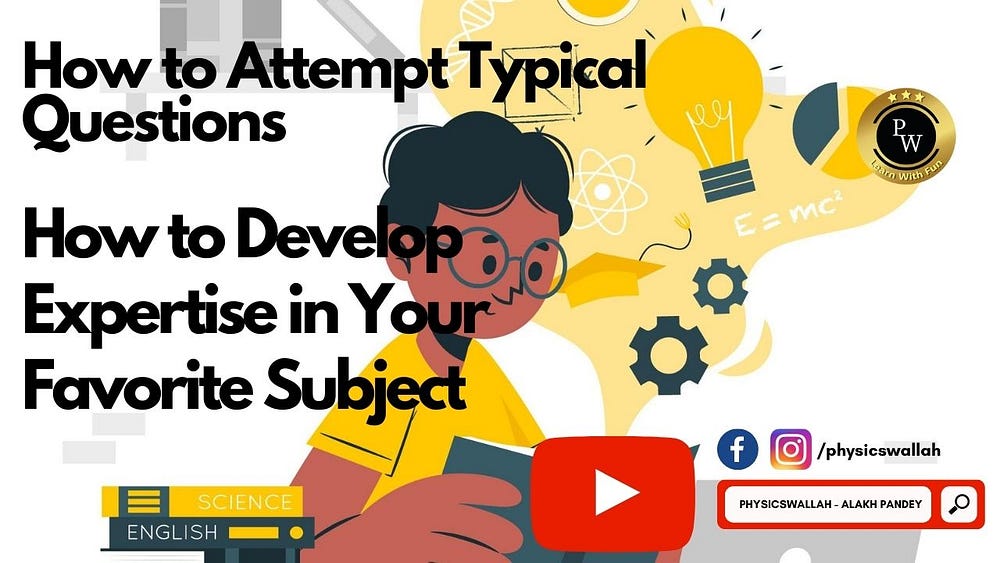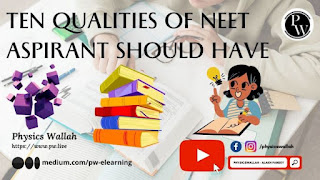How to Attempt Typical Questions
Do you feel like you’re reading too much but not getting anywhere? You’re putting so much effort into studying and still unable to solve the difficult questions. Textbooks are tedious and difficult. The content in the book is complicated and given in a language that is not very user-friendly for the students.
Many students approach reading books by opening a book and beginning with the first sentence in the chapter. Then they fall into one of two categories: those who read each word carefully and copy the notes for hours, or those who scan the words and turn the pages. Although very different, both methods do not work because they do not involve practical, critical thinking — the first method converts the reader into a copier, and the second is time-consuming. Still, it does not include any interaction with the machine. There is no path leading to a higher level of understanding or retention of what you have just read.
Instead, research shows that effective learning strategies lead to understanding and retention and help students do better in the classroom. Effective reading strategies are those where you force your mind to do something (something practical and research-based) while reading your textbook.

Ways to attempt questions
- Understand the question- The first step is to understand the problem, ‘what it is about, ‘what they’re trying to ask,’ try to find out the answer. It doesn’t matter if it’s in the form of text or diagram or anything else. You can use NCERT Solutions for your reference.
- Find a way and solve the problem- Write down everything given or known. Draw a diagram if appropriate to show the relationship. Write down all the formulas. For numerical problems, try and measure the answer first. It will help you to evaluate your work overtime.
It is a clean, careful job to protect you from making mistakes and allow you to find them when you make them (show your units !!). When a teacher sees your work clearly, he may give you a small amount of credit for what you know, even if your final answer is incorrect.
- Reread your answer- Check your answer by rereading it. Change it if there’s some mistake with the answer. Sometimes it happens when you’re trying to write something by putting together some ideas and messing it. So, it is essential to check the answers. Solve as many sample papers as you can; it’ll help you practice your answers before the examination.
How to develop expertise in your favorite subject
For some students, subjects turn into a passion that converts them into the career they want. Some people achieve their dream, but some people cannot reach them. Being a subject matter expert is an option for people who wish to develop expertise in their favorite subject.
There are some ways to develop expertise in your favorite subject:
- Review the information periodically- Periodic learning is better if you want to keep your learning for the long term rather than for a short period. Cramming the information makes you remember for a shorter period as students slightly look into the information and leave it and forget everything.
- Learn the same information in multiple ways- Study shows that learning a piece of information in numerous ways helps you understand it better and leave a memory in your mind. There are several ways to review any information in multiple ways. You can try it with text format, diagrams, video lectures from Physics Wallah, read the notes, read your textbooks, etc.
- Make handwritten notes- Try to make handwritten notes rather than using the laptop for the notes. When you write your notes with your hands, you read them, repeat them repeatedly, and then write them. It makes the topic of saving into the mind and will help you later on. Students with handwritten notes refrain from the information and write it according to them, but they copy every word with laptops without understanding it.
- Focus on the process, not the outcome- It is believed that the students who succeed in the class focus on learning, not the marks. The main focus the student should have is to achieve their goal. There are two types of plans: a performance goal that indicates the student’s performance and a learning goal that implies how much a student is getting.
- Test yourself- Testing yourself frequently is best to understand your strengths and weaknesses. It also helps you set a goal for yourself and is necessary to develop expertise in your favorite subject. By checking your performance, you’ll be able to set a bar on how much practice you need to achieve your goal. You can use the Important questions for class 8 Maths, Science, English, and Hindi before starting your tests. It also boosts your confidence with time.
Conclusion
Look for indicators of test intelligence if some strategies do not work. When guessing the answer, check your assumptions against what you already know and contradict what your rational thinking tells you. It is a long article that contains a lot of information. But you may feel frustrated, as you do not have to use everything at once. Focus on just one tip per week or one tip per month.
Once you change the tip to a consistent reading habit, move on to the next one. Throughout the process, do not let the goal of getting a straight-A become unhealthy. After all, education is more than just getting good grades. It’s about the pursuit of doing good. It is about developing your strength. And it is about learning and growing so that you can contribute effectively.
Aadi Narayan is the author of this article. To know more about Physics Wallah please visit our Website@ pw.live
Content Source@ https://www.geekbloggers.com/how-to-attempt-typical-questions/



Comments
Post a Comment